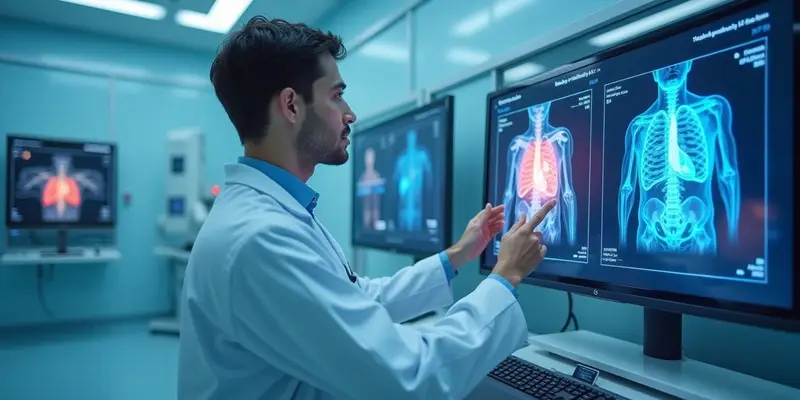- Published on: Jan 13, 2024
- 3 minute read
- By: Dr Rajan ( Medical Second Opinion Cell)
Memory Techniques: Scientific Brain Boost
Have you ever experienced the frustration of forgetting where you placed your keys or drawing a blank when trying to recall a friend's name? In the whirlwind of our fast-paced lives, memory lapses are an all too familiar occurrence. The good news is that within the fascinating realm of memory, there exist scientifically proven techniques capable of sharpening your mind and enhancing your cognitive abilities. So, let's embark on a captivating journey where we explore the intricate workings of brain parts, unravel the mysteries behind various types of memory, and discover effective ways to boost memory power. Are you ready to unlock the full potential of your brain?
Understanding the Brain Parts and Their Roles
Our brain, the most complex organ in the human body, consists of various interconnected parts, each playing a crucial role in our cognitive functions. To appreciate the impact of memory techniques, let's delve into the key brain parts responsible for shaping our memory.
Hippocampus: The Memory Center
-
At the core of memory formation and consolidation.
-
This seahorse-shaped structure in the brain is vital for converting short-term memories into long-term ones.
Amygdala: Emotion and Memory
-
Adding an emotional touch to our memories.
-
The amygdala influences the encoding and storage of emotionally charged events.
Types of Memory: Unraveling the Intricacies
Memory is not a monolithic concept; it is composed of distinct types, each serving a specific purpose in our daily lives. Understanding these types is fundamental to comprehending memory enhancement techniques.
Short-Term Memory: The Temporary Storage
-
Briefly retain information for immediate use.
-
Allows us to hold and process information in the present moment.
Long-Term Memory: The Enduring Archive
-
Stores information for the long haul.
-
Forms the basis of our knowledge and experiences over time.
Kinds of Memory: A Deeper Dive
While types categorize memory broadly, delving into specific kinds provides a nuanced understanding of how our memory functions in various situations.
Episodic Memory: Reliving the Past
-
Involves the recollection of specific events or experiences.
-
Allows us to mentally time-travel and relive significant moments in our lives.
Procedural Memory: The How-To Memory
-
Stores information on how to perform certain tasks or skills.
-
Enables the execution of learned activities without conscious effort.
How to Boost Memory Power: Practical Strategies
Now that we have a foundational understanding of memory and its components, let's explore actionable strategies to boost memory power.
Regular Exercise: A Boost for Brain Health
-
Improves blood flow to the brain, fostering the growth of new neurons.
-
Regular physical activity has been linked to enhanced cognitive function and memory.
Mental Stimulation: Keep Your Brain Active
-
Engaging in mentally challenging activities promotes cognitive fitness.
-
Puzzles, learning new skills, and critical thinking exercises stimulate brain activity.
Memory Test: Assessing Your Cognitive Abilities
Wondering about the effectiveness of your memory? Let's indulge in a couple of memory tests to gauge your cognitive prowess.
Recall Challenge: Name That Tune
-
Attempt to recall the names of songs or artists from your favorite playlist.
-
This exercise targets your auditory memory and recall abilities.
Word Association: Connecting the Dots
-
Associate each word with a memory trigger to test your recall ability.
-
Enhances your verbal memory and the ability to make meaningful connections.
Mild Cognitive Impairment: Seeking Professional Guidance
Recognizing the potential signs of mild cognitive impairment is crucial. If concerns arise, taking proactive steps, including an online doctor consultation, can provide valuable insights:
Recognizing Warning Signs: Forgetfulness vs. Cognitive Decline
-
Distinguishing between occasional forgetfulness and signs of cognitive decline is essential.
-
Consistent memory lapses may indicate the need for further evaluation.
The Convenience of Online Doctor Consultation: Accessing Expert Advice
-
Online consultations offer the convenience of seeking expert guidance from the comfort of your home.
-
A qualified healthcare professional can assess cognitive concerns and provide personalized advice.
Conclusion:
Exploring memory techniques unveils the secrets of our brain's dance, diverse memory types, and practical strategies for a stronger memory. Regular exercise, mental challenges, and occasional memory tests are your allies. If you ever worry, an online doctor is just a click away. Embrace these memory tricks to unlock your brain's full potential. Ready for this transformative journey?
Read FAQs
A. Absolutely! Science-backed techniques like regular exercise, mental stimulation, and a healthy lifestyle contribute significantly to enhancing memory.
A. Boosting brain memory involves adopting practices like regular physical exercise, engaging in mental challenges, and maintaining a balanced lifestyle. These methods support cognitive health and memory functions.
A. One effective technique is mental stimulation through activities like puzzles, learning new skills, and critical thinking exercises. This engages your brain, fostering improved memory and cognitive abilities.









